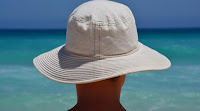For some, the holidays have already begun and it's finally time to have a good time. To avoid that holidays are a source of disillusionment, some scientific studies help us make the most of.
It would seem that the experience brings more happiness than material goods. How to explain these results and how can we apply it to the holidays?
Florence Servan-Schreiber: All studies by economists have shown that beyond a certain sum which covered a little more than our basic security needs, food and education, the accumulation of goods was not our happiness. There is also studying Leaf Van Boven (University of Colorado) and Thomas Gilovich (Cornell University) from 2003. One can also read about the fact that the experience is much more effective than the material for maximize his happiness, the work of T. Ryan
Howell and Graham Hill (researchers in San Francisco) entitled "The mediators of experiential purchases Single" published in 2009 in The Journal of Positive Psychology.
However, the quality of our experiences, it makes a real difference. For example, even when we move expensive vacations abroad, which makes it pleasant trip are often the conversations we had with foreigners or the links that we have woven a café terrace, during a train journey or meeting others. To have been able to make do in unknown land and create some habits locally makes us proud and sure of us than staying in a hotel where the service is impeccable and impersonal. Now if you look closely, it is not necessary to go very far to have such experiences. Some people spend their holiday by returning every year under the same fig tree, for they found knowledge and establish social bonds essential to our balance and fulfillment.
As part of the preparation of the holidays, to maximize his happiness, is it better to plan its holidays or to take it at the last minute? Why and what advice would you give to future guests?
Anticipation is a pleasure. The study Amit Kumar (University of Chicago) and Thomas Gilovich (Cornell University), A Wonderful Life: experiential consumption and the pursuit of happiness, published in August 2014 in the Journal of Consumer Psychology, goes in this direction. When we expect something forward, our brain produces 14% more dopamine than normal. A bit like in a romantic date. The delight is often waiting. For once we are in front of the other, come what may. Holidays belong to this family moments we fantasize and hope. Whether the unknown or the familiarity we all strongly believe in the interruption. The pace of change or place we always used to hope for the best. Each style, but the promise of a change of scenery is always its amenities. Once we get there, again, come what may, but positively project ourselves elsewhere and otherwise is part of the expression of our optimism. Who gives us wings. So, when we plan our vacation in advance, rather than trigger them at the last moment, we agree all this waiting.
Will has a particularly important period during the holidays? What is the time in which we remember the most?
Elizabeth Dunn, a researcher at the University of British Columbia and wrote Happy Money: The Science of Happier Spending in 2013, has a strong case showing that the very first and the very last days of vacation leave the most lasting mark on our memory. She said we must treat these two periods to keep good memories of his vacation. If we take this into account, do not forget to heal, especially after the holidays. This is often the time during which it must withdraw a house or make a tenancy. But counting the last moments always gives a special flavor and intensity conditioned by the limit. The more it is likely to end soon, the more we enjoy. There has also in the first part of a carefree holiday we enjoy. And in the second, a consciousness that we hugged. This is natural.
Is it better to give priority in terms of expenditures, small pleasures rather than large?
A big expense gives us a fleeting effect on the moment. But not for long. Daniel Gilbert speaks a lot. There is in particular the study of Elizabeth Dunn (University of British Columbia), Daniel Gilbert (Harvard University) and Timothy Wilson (University of Virginia) published in April 2011.
Always the same illusory relation to material goods. Because we get used to everything. But not only during the holidays. So rather than relying on costly and fleeting experience, once the budget has limits, and it is often the case, better to multiply the small pleasures. Buy the best tomatoes, enjoy a drink at sunset, invite friends in turn makes us, for example, more than happy to share the bill. He who pays is the one that is proud and gratified is invited.
We often tend to say disappointed his vacation because they are too idealized. In this context how to get the most from their holiday and return for?
Let the dictates wonderful holiday. The more we see of fabulous images on Facebook, the more we compare ourselves. Or holidays may have nothing to visually spectacular, and yet have been, in human terms, family or love quite soft. Sometimes it is a complicated journey that has allowed us to learn about ourselves and others. There are no standards in terms of quality of experience. We especially open to difference and break the everyday. And then, well we'll see. This is the best way to ensure the best surprises.
